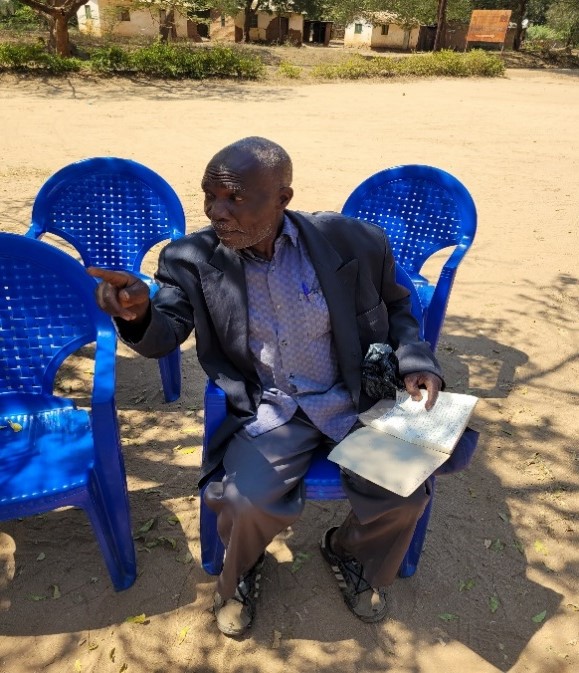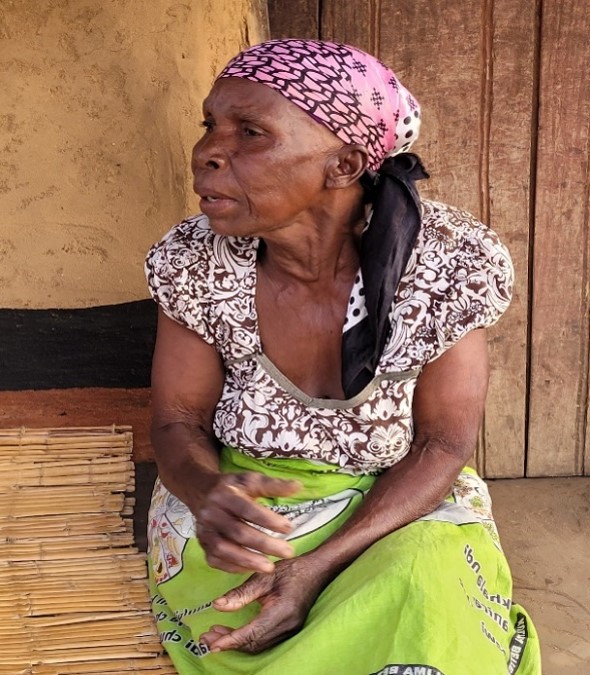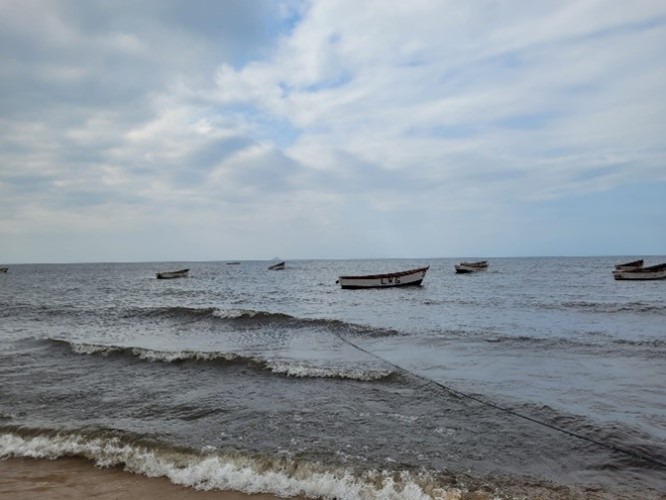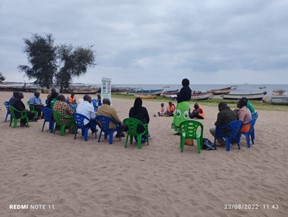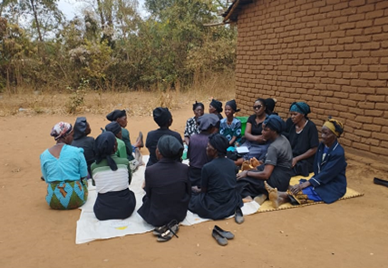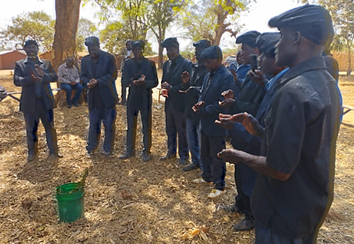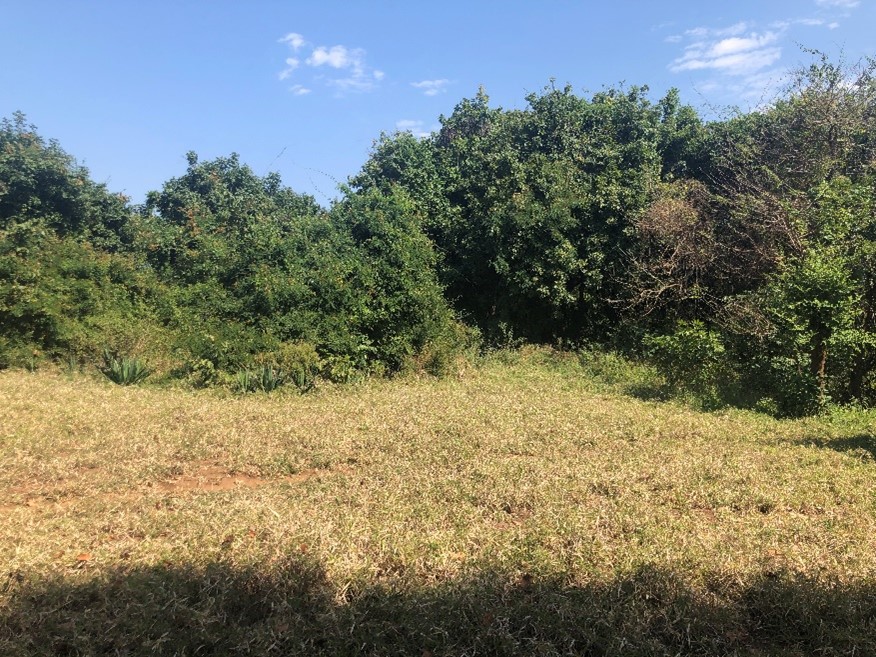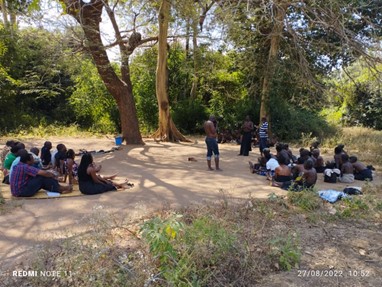Weaving Indigenous and Local Knowledge in the Scoping Process of the National Ecosystem Assessment of Malawi
- News
This article was written by the Malawi National Ecosystem Assessment project team, with support from BES-Net ILK Support Unit team, UNESCO LINKS, and the NEA Initiative. All pictures in this article are courtesy of the Malawi NEA project team.
Malawi’s national ecosystem assessment, initiated in 2020, acknowledges that indigenous and local knowledge systems provide valid and useful knowledge to enrich the assessment process and outputs. As such, indigenous and local knowledge holders have been widely consulted and engaged in the scoping stage of the assessment process. The participation of these actors in this stage has been essential since they possess significant knowledge innovations and practices of their surrounding biodiversity and ecosystems. It also includes knowledge about the multiple values (medicinal, cultural, and spiritual), the rules that govern the use of biodiversity and ecosystem services, as well as changes experienced over time, and intergenerational knowledge transfer systems and practices. The identities, cultures, and livelihoods of indigenous and local communities are often deeply intertwined with their surrounding biodiversity and ecosystems and the services and benefits they offer.
“We acknowledge that indigenous and local knowledge holders possess a large and impressive storehouse of local knowledge, innovations and practices about biodiversity and ecosystems and are better placed to contribute to their conservation. That is why we have engaged and consulted over 150 indigenous and local knowledge holders in the assessment scoping stage.”
Dr. John Kazembe, Project Coordinator of Malawi’s National Ecosystem Assessment.
Working with indigenous and local communities in the national ecosystem assessment
In December 2021, the Malawi National Ecosystem Assessment team organized three sub-national indigenous and local knowledge framing workshops across the three administrative regions of the country: Northern, Central and Southern.
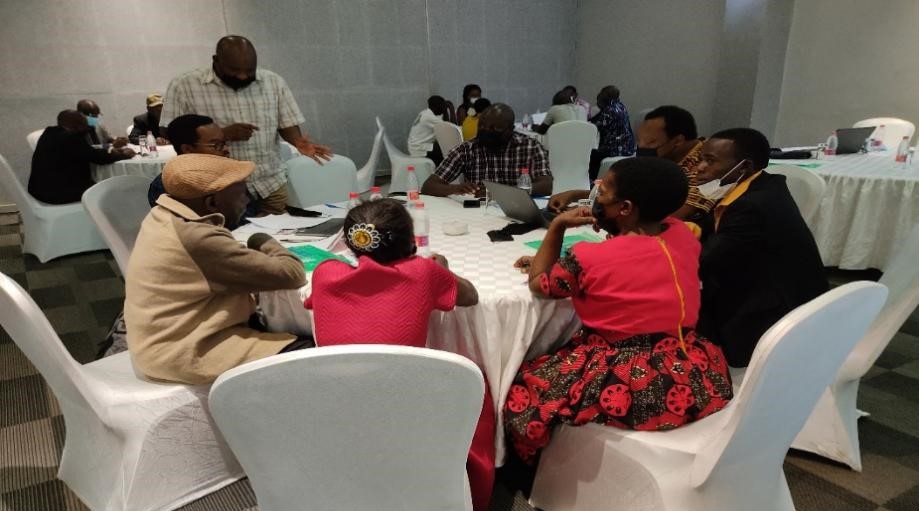
Following key recommendations from the framing workshops, localised follow-up activities were organized in August 2022 to facilitate the engagement of elders and women (with unique knowledge and worldviews) who were unable to attend these centrally organized workshops due to inflexible mobility (elders) and multiple household responsibilities (women). In consideration of this, the Malawi National Ecosystem Assessment project team organized ‘household’ dialogues with elders and focus group discussions with custodians of customary managed sites and ecosystems.
These field activities were conducted in the eight prioritized districts of the national ecosystem assessment: Central Region (Salima and Lilongwe districts), Southern Region (Nsanje, Mulanje and Zomba districts), and Northern Region (Mzimba, Rumphi, and Nkhatabay districts). The follow-up scoping activities strived to identify and refine communities’ issues of concern, their priorities, and policy questions that could be addressed by the national ecosystem assessment as well as explore suitable methods of mobilising and synthesising indigenous and local knowledge in the assessment.
Dialogue with elders
The ‘household’ dialogues with elders across the eight districts helped to understand traditional management systems of natural ecosystems, interlinkages between culture and biodiversity, and current prevailing challenges. It was discovered that historically, ecosystems were managed through traditional rules and regulations enforced by the village council of elders. As an example, essential forests were preserved through access restrictions and the prohibition of cutting down vital tree species. However, these systems are no longer widely applied due to several challenges. For instance, high population growth has resulted in the violation of the community bylaws, leading to deforestation largely due to charcoal burning and land use change. Furthermore, the trivialisation of community bylaws over statutory regulations led to the loss of traditional management systems. Nevertheless, the assessment team noted that co-management of natural resources, through harmonising community bylaws and statutory rules, in addition to meaningful engagement of communities as custodians of ecosystems, could spur sustainable use and conservation of nature.
Right: Dialogue with an elder in Nsanje District.
Managing ecosystems in a cultural and customary manner
Three expeditions and associated focus group discussions were organised, in three sites, to assess their suitability as good case studies for customary managed ecosystems to be captured in Malawi’s national ecosystem assessment. The visited sites included Mbenje Island in Salima district, Mtsinja shrine in Lilongwe district, and Khulubvi shrine in Nsanje district. In most cases, separate focus group discussions were held with women to ensure their meaningful engagement while respecting cultural dynamics. In these discussions, women gave a detailed outlook on intergenerational knowledge transfer practices, especially among young girls.
Mbenje Island: A fishing community
On a visit to the Mbenje community within the area of the Traditional Authority Kuntumanje, the assessment team held discussions with the Kafumu Beach Village Committee.
The local people believe Mbenje Island is no ordinary place: men report meeting phantasms, more especially a figure of a naked woman, and, whenever a snake is killed on the island, violent storms immediately commence on the lake, and only cease when a sacrifice is made by the elders. As a result of this tradition dated from the 1950s, Mbenje Island is believed to be a spiritual land, and has been sustainably conserved and culturally managed by its people through traditional rules and practices. Largely due to this customary management systems and sustainable fisheries use and conservation practices, the island is characterised by fish diversity (some species being only found in waters around the island alongside Lake Malawi), fish abundance, and unique fish taste. Currently, the island’s fisheries resources are being effectively managed by local leadership in collaboration with the government.
Right: The project team interacting with Mbenje Island Management Committee.
Mtsinja Shrine: A site of cultural heritage and conservation
In an expedition to Mtsinja shrine, four focus group discussions were held with about fifty religious leaders, chiefs, elders, and women groups to understand how religious beliefs and practices are supporting conservation of terrestrial ecosystems. The local community has very strong cultural practices and aspire their shrine to be listed as a UNESCO cultural site. However, despite having strong cultural practices, the local communities and traditional rules have been unable to withstand pressures of land degradation such as charcoal burning and land use changes. The community is keen to work with the government to promote agroforestry systems compatible with their cultural practices.
Right: Religious leaders in Mtsinja shrine, Lilongwe District
Khulubvi Shrine: A sacred forest
Further south in Nsanje district, the team visited Mbona Khulubvi shrine, an important sacred place among the Mang’anja tribe. Khulubvi shrine is amidst a very thick forest with diverse species of trees and shrubs and a source of medicinal plants. The elders of the community give sacrifices to M’bona in times of drought and other crises. The forest is well protected with community bylaws and restrictions, whereby no one is allowed to cut down any tree. If caught, the person breaching this rule is required to pay a fine, and in extreme cases, after repeated violations of bylaws, the offender is chased out of the village. As the area is considered sacred and people are afraid of it, it has been well preserved. The forest serves as a testimony of the cultural tradition of the local people, enabling them to pass on the knowledge to their children through the Khulubvi shrine, thus preserving their cultural heritage.
Apart from the Khulubvi shrine, the Matandwe forest in Nsanje is rich in biodiversity, which was preserved over the years through cultural beliefs, prohibition, and restrictions on the use of forest resources by village leaders. However, high population growth, civilisation, and modernisation have threatened their culture and knowledge transfer from generation to generation has been difficult, especially as the young generation is rarely interested in history or culture preservation due to their exposure to education, democracy, modern religion, and technology. In some cases, high population growth has resulted in forest encroachment in search of farmland and settlement areas, leading to a loss of biodiversity in the forest.
Right: Discussions held at M’bona Khulubvi shrine.
Way forward
Engagement with indigenous and local knowledge holders revealed that there has been a power shift in the management of natural resources over the years, notably during the colonial and post-colonial epochs. Customary tradition management systems were weakened by statutory governance systems of natural resources. However, traditional structures are today increasingly recognized in biodiversity and ecosystem conservation and local communities are progressively engaged in conservation initiatives, including in the enforcement of bylaws. The traditional knowledge holders who have been consulted have called for the empowerment of the customary management systems and strengthening of local leadership, particularly traditional authorities. They have further stressed on the need to harmonize statutory and customary management systems to ensure effective management of natural resources. The traditional knowledge holders have also called on governments to recognize and incorporate indigenous and local knowledge into conservation decisions and policies.
Indigenous and local knowledge systems and the process of their evolution over time are critical for the management of biodiversity. There is a need to respectfully acknowledge their cultural distinctiveness of management and epistemology. Malawi should engage the indigenous and local communities who are often directly affected by conservation policies and actions. Also, weaving indigenous and local knowledge and scientific knowledge will expand knowledge base and broaden policy options for informed and locally appropriate decision.
The Malawi National Ecosystem Assessment team is currently finalising the incorporation of indigenous and local knowledge into the assessment scoping report. Upon the launch of this report in 2023, the assessment team will start working with the indigenous and local authors within the assessment process.
Acknowledgement
Malawi’s national ecosystem assessment is implemented by Lilongwe University of Agriculture and Technology in collaboration with the Environmental Affairs Department.
The National Ecosystem Assessment Initiative (NEA Initiative) at UNEP-WCMC is part of the Biodiversity & Ecosystem Services Network (BES-Net), working in partnership with UNDP and UNESCO. These community follow-up activities were organized in partnership with BES-Net Indigenous and Local Knowledge Support Unit led by UNESCO with the financial support of the International Climate Initiative (IKI) Federal Ministry for the Environment, Nature Conservation, Nuclear Safety, and Consumer Protection of the Federal Republic of Germany and SwedBio.
